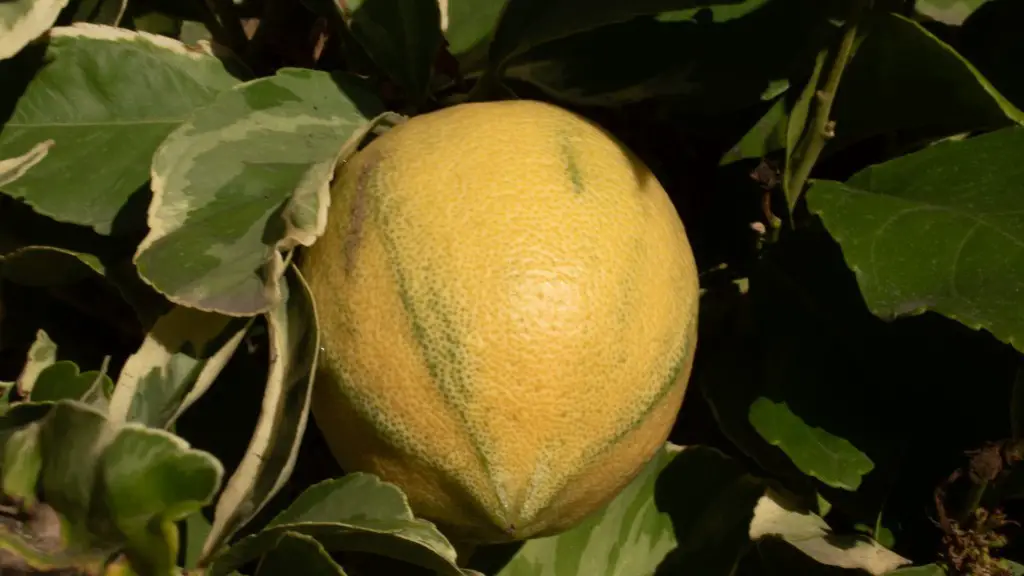Life Cycle of Avocado Trees
Avocado trees are evergreen plants that live for decades, producing fruit over its lifetime. An avocado tree can take up to five years to produce fruit, but when it does, it can produce abundant crops for up to fifty years or more. Avocado trees can grow in any type of soil, but prefer a well-drained, loamy soil with a pH of 6.0 to 6.5. The trees require plenty of nutrients and water, so fertilization and regular watering are important for production.
Avocado trees are capable of producing up to 2,000 or more fruit each year if maintained properly. The amount of fruit the tree will produce is dependant on the age and health of the tree, as well as the climate, amount of sunlight, and amount of water it receives.
Pruning an Avocado Tree
For an avocado tree to produce its maximum amount of fruit, it is important to prune it properly. Pruning is done to control the size of the tree, as well as to promote good air circulation, which helps with disease control. Pruning an avocado tree is best left to an experienced arborist because it can be a difficult and tedious job.
Harvesting and Storing Avocado Fruit
The harvest season of an avocado tree can last up to eight months depending on the variety. Avocado fruit should be harvested when it begins to turn from green to black. To determine if the fruit is ripe, gently squeeze it. If it is soft to the touch, it is ready for harvest. Wait to pick the fruit until the day you plan to eat or use it, as it does not store well.
Nutritional Benefits of Avocado Fruit
Avocados are highly nutritious and have a wide range of health benefits. They are an excellent source of fiber, vitamins, and minerals, such as potassium, which helps lower blood pressure. They are also high in healthy fats and contain omega-3 fatty acids, which are beneficial for heart health. Avocado fruit can also help reduce inflammation, lower cholesterol, and help prevent weight gain.
Avocado Production Around the World
Avocado production is one of the most profitable agricultural sectors worldwide. It is an important export crop for many countries, with Mexico, the United States, and Chile leading the way in production. In recent years, production has increased significantly in other countries, such as Peru, Brazil, and Colombia.
Growing Avocado Trees at Home
For home gardeners, growing an avocado tree can be a rewarding experience. Although it can take several years before they begin to bear fruit, they are relatively low-maintenance and can produce up to sixty pounds of avocados each year. By selecting the right variety and providing adequate water, sunlight, and good soil, gardeners can enjoy the rich flavor and nutrition of homegrown avocados.
Organic Options for Growing Avocado Trees
Organic farming has become increasingly popular as consumers seek food that is free of chemicals and toxins. Organic avocado production is no exception. It is important to choose an organic soil and fertilizer, as well as trees that are disease resistant. With proper care, organic avocado trees can produce an abundant crop of fruit without the use of synthetic chemicals.
Impact of Climate Change on Avocado Production
The effects of climate change can have a significant impact on avocado production. Rising temperatures, changing precipitation patterns, and extreme weather events can disrupt the delicate production process and lead to significant losses in yield. Additionally, increased pests and pathogens can further decrease production, leading to higher prices and a decrease in availability.
Improving Avocado Production
In the face of the challenges presented by climate change, there are a number of ways growers can improve production. These include planting more resilient varieties, installing high-quality irrigation systems, and adopting better farming practices to improve soil health. Additionally, research into new production technologies and agroecological approaches can help increase yields and reduce losses.
Harnessing the Potential of Hydroponic Avocados
Hydroponic agriculture is a growing sector of the agriculture industry and can be utilized to produce avocado fruit. Hydroponic systems offer many advantages for both growers and consumers, including increased yields, water conservation, and pesticide-free production. Additionally, the closed loop nature of the system reduces the risk of contamination and can be used to produce a higher quality product at a lower cost.
Future Prospects for Avocado Production
Avocado production is expected to keep increasing in the coming years as demand for the fruit continues to grow. Growers will continue to focus on increasing yields and improving quality, as well as innovating production techniques and adopting new technologies. Additionally, research into climate-resistant varieties and better farming practices will also be important in order to ensure a reliable and sustainable production of avocado fruit.

